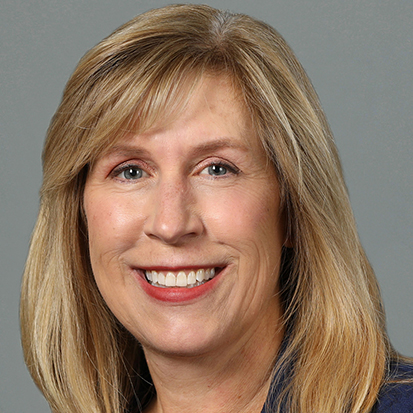
When 2,800 educators gathered at the AVID National Conference this past December, there were two overwhelming refrains: ?We’re tired? and ?We have missed being together.? Two months later, the National Education Association published a survey of its 3 million members’ opinions on key issues. The results were staggering: 55% of educators said they’re ready to leave the profession earlier than they had planned.
Educators are tired, and many are reconsidering their paths in the classroom. However, that is not the case everywhere. There are schools in this country where educators agree that teaching has been more challenging than usual ? that is undeniable. And yet, leaving the profession hasn’t crossed their mind because where they are, with their colleagues and students, is where they want and choose to be.
Looking at campuses where teachers aren’t leaving in droves and are instead working together to cultivate thriving learning cultures offers us strategies for circumventing a ?Great Resignation? within education. A common thread that emerges through this examination is the concept of collective educator agency, where educators on a campus take intentional actions based on shared beliefs and trust that, together, they can increase opportunity and measurable success for all students and each other. Collective educator agency can salvage and support the genuine passion for teaching that many educators still hold.
When we have each other and aren’t doing hard things alone, there is joy in the work and joy in living our purpose. That’s why, as we face the greatest challenge our public education system has ever experienced, district and school leaders must focus on creating a culture where leaning in and leaning on each other makes doubling down possible.
Let me be clear: doubling down doesn’t mean educators should be working twice as hard. It means we should be working as a team. Because community is essential to living our purpose, we must build collective bonds to carry us through the hard times. Building collective agency is the only sustainable antidote to the despair that threatens to overwhelm too many educators.
I’m coming to these conclusions based not only on data-driven research, but also from personal experience. One of my family members is a school teacher who is one of the 55% of educators who are seriously considering leaving the classroom. It’s disheartening to see their spark and love for teaching beginning to dim.
I also taught in school districts for over a decade and have spent 20 years working to support new teachers and encouraging them to stay in the profession. I can assure you that the current crisis is unlike anything I’ve seen in over 30 years in public education. In the work I am currently engaged in with over 7,500 schools across the nation, I know that there are schools where the joy and love of teaching are well and alive. Schools where educators celebrate, laugh, learn, and sometimes even grieve, together.
Related:?4 promising strategies to help retain your best teachers
Take, for example, Santiago High School in Garden Grove, California. There is not a teacher exodus taking place at Santiago. This is because both school and teacher leaders have established a culture of support and excellence, where the relationships between educators promote a flourishing learning environment. You’ll notice there’s space for laughter in staff meetings. Time is carved out of schedules for educators to learn, plan, and attend professional learning programs together. Through nurturing these relationships, teachers know they are supported and cared for. And the caring relationships between educators translate into classrooms where students also feel seen, known, and valued.
According to every metric, Santiago students are successful. The student body is approximately 83% Hispanic and 13% Asian American; 35% are English learners and 86% are socioeconomically disadvantaged. Yet thanks to an unwavering focus on building collective educator agency, Santiago is thriving and launching students into success in academics, careers, and life. The high school has grown its AP course offerings, as well as the number of students taking AP classes and participating in its honors program. And 67.5% of students enrolled in either a four-year or two-year college in 2020-2021, above the 2019 national average of 66%.
Creating a culture of collective educator agency
A foundation of collective educator agency supports the ability to build relational capacity ? a sense of community ? among educators and students. For example, teachers, counselors, and alumni are frequent visitors to Santiago High School because they want to give back to the community by supporting students and serving as mentors. Teachers embrace the mantra of, “If not me, then who? And if not now, then when?”
Conversations are honest, with teachers comfortable revealing vulnerability in asking for help. New and veteran educators will ask for feedback and support from other teachers. This shared sense of trust, based on shared beliefs, results in a culture of collective educator agency where teachers move from believing they can make a difference to knowing they can. And as educators move from sharing beliefs to taking intentional actions together, they discover the power that comes with relying on each other for support and growth.
It’s time for the leaders of our educational system to focus on developing community and confidence, with supportive environments that are rich in relational capacity. This type of investment in our teachers is the linchpin to restoring their engagement and commitment. And it will all start with school leaders demonstrating their commitment to building collective educator agency.
Lynn Kepp is the Vice President of Learning Programs, Products, and Services at AVID, a nonprofit training 85,000 educators annually to close the opportunity gap and prepare students for college, careers, and life.
More from DA









